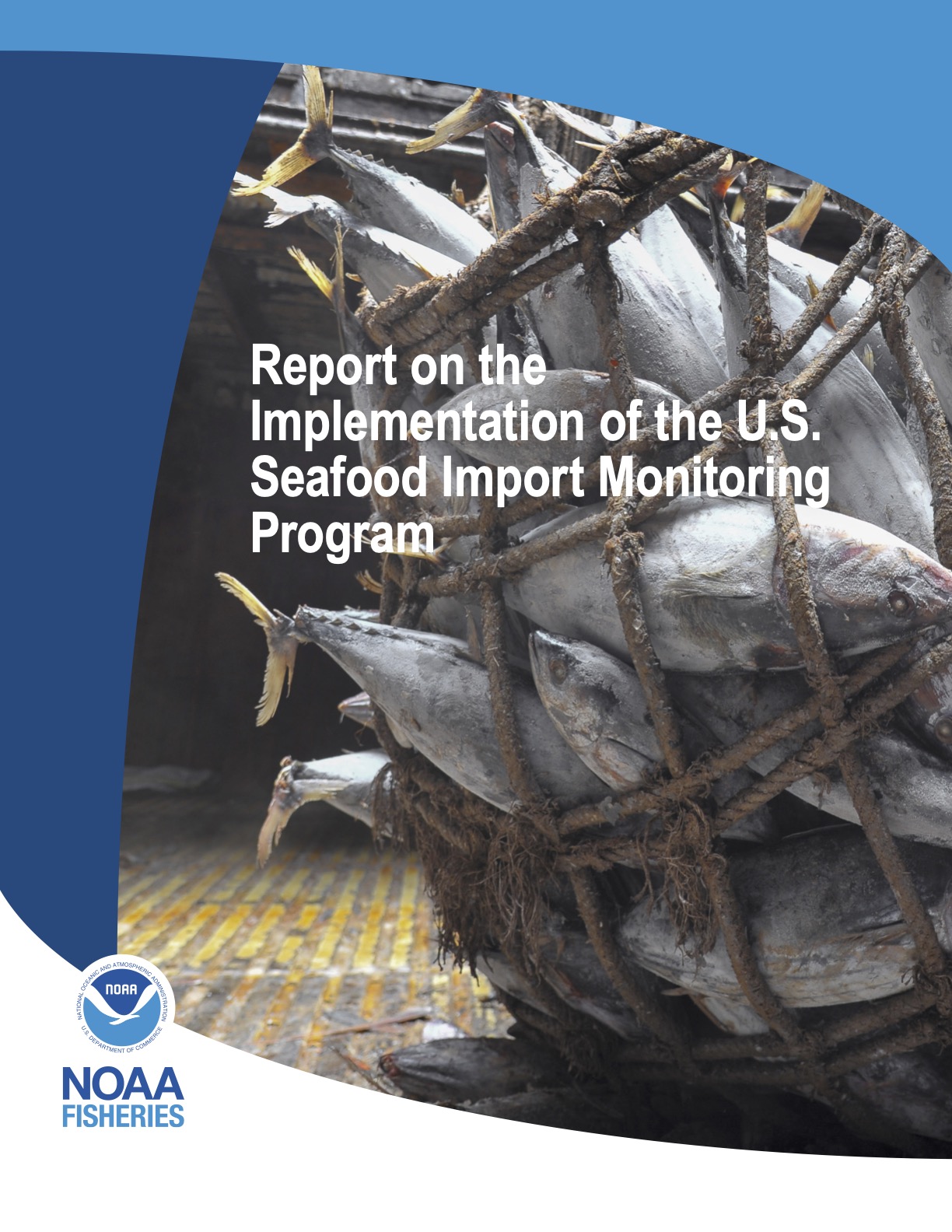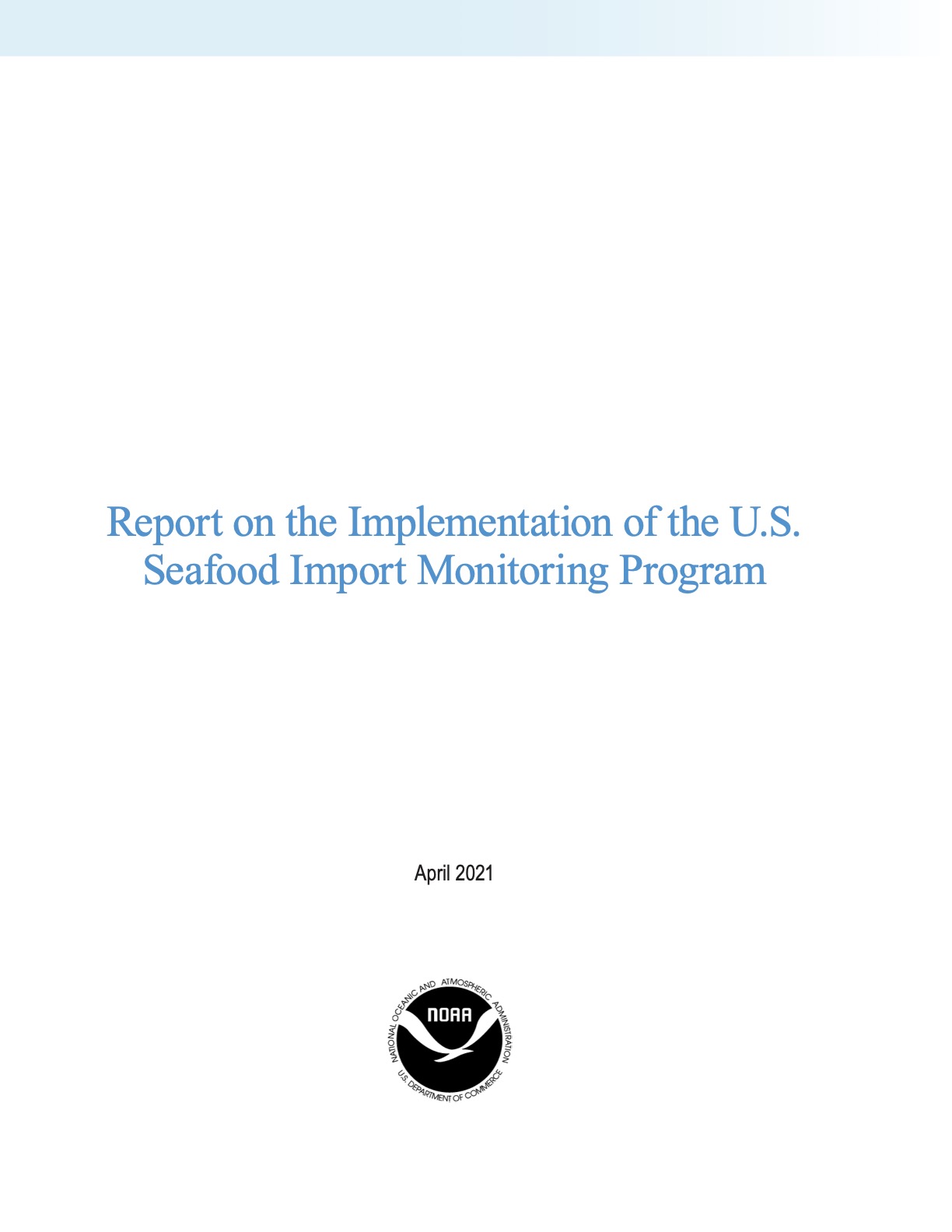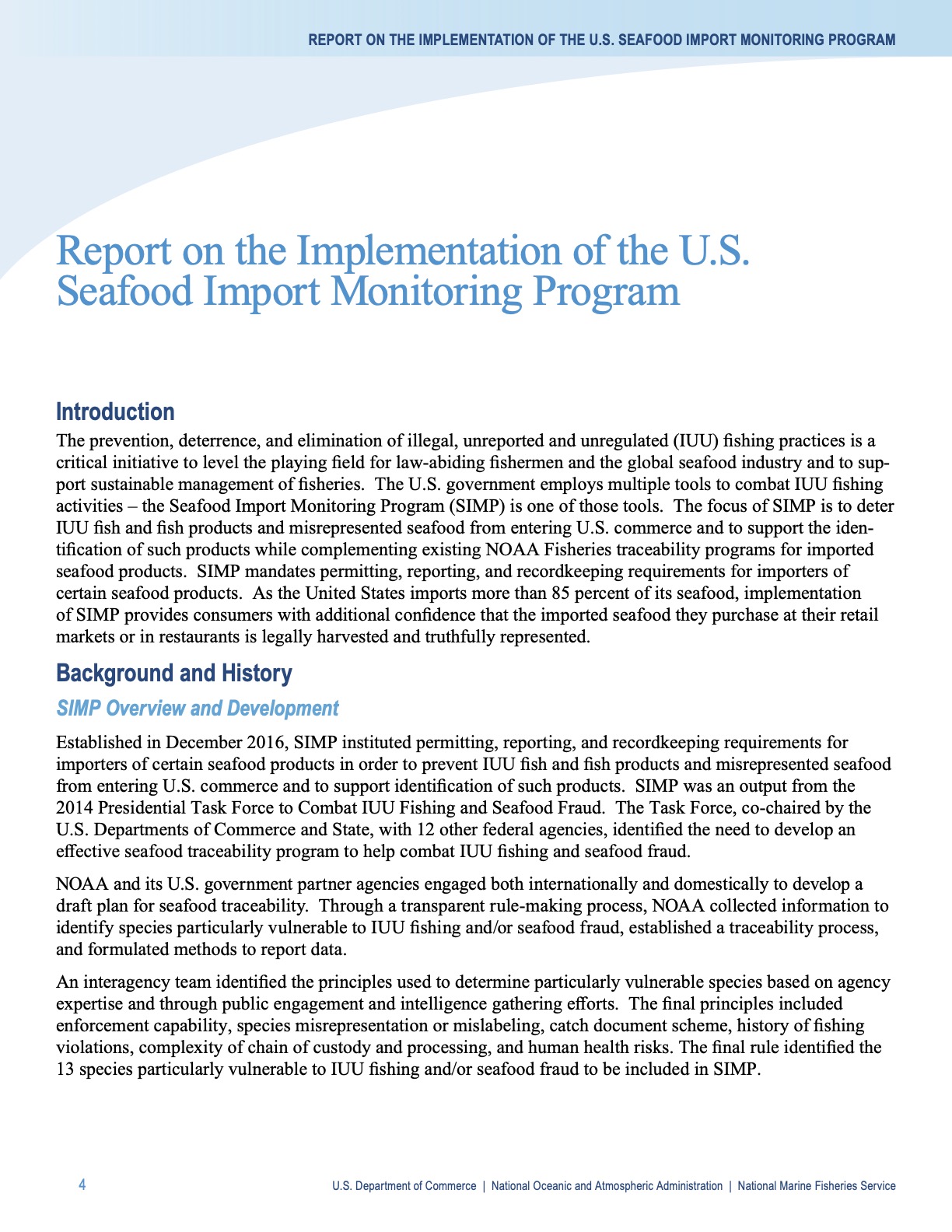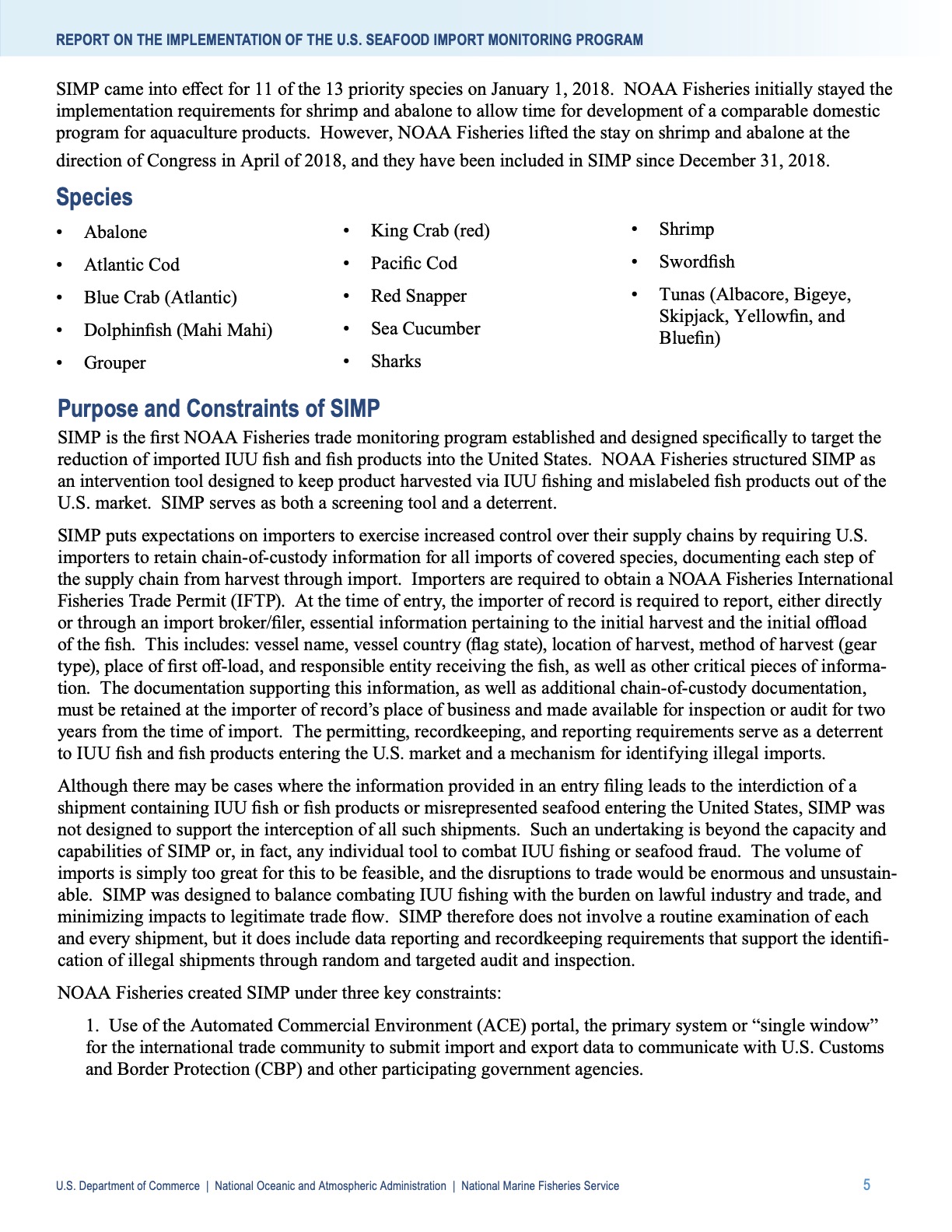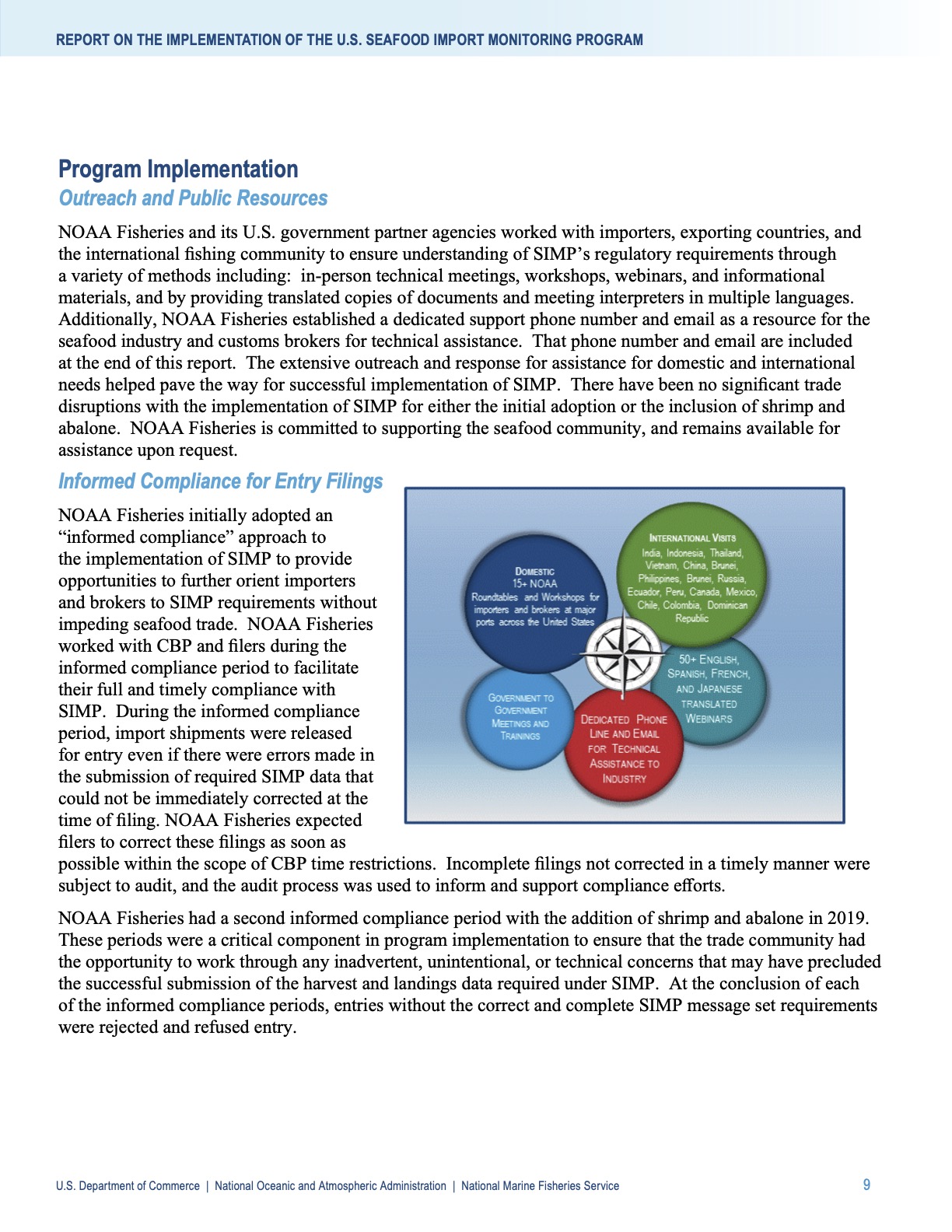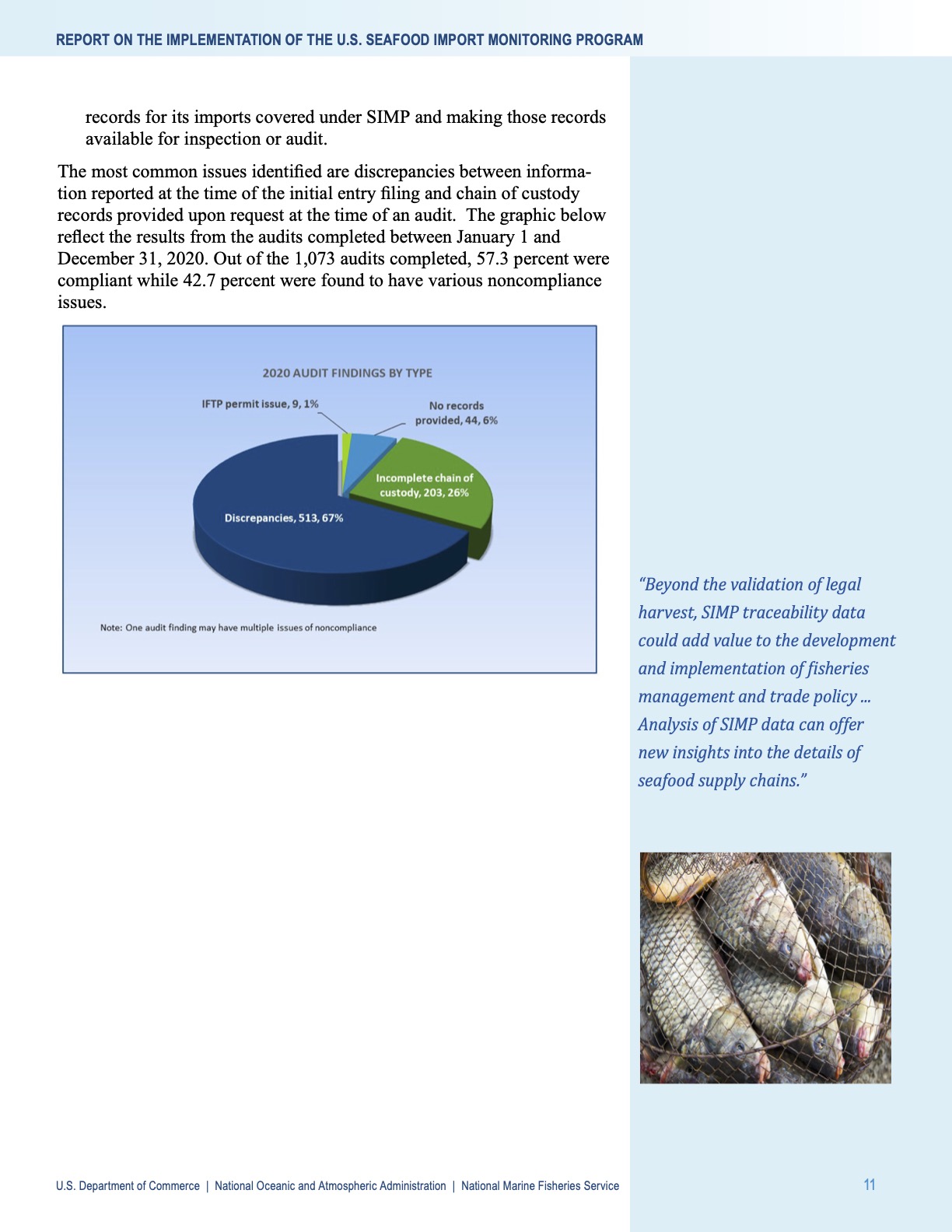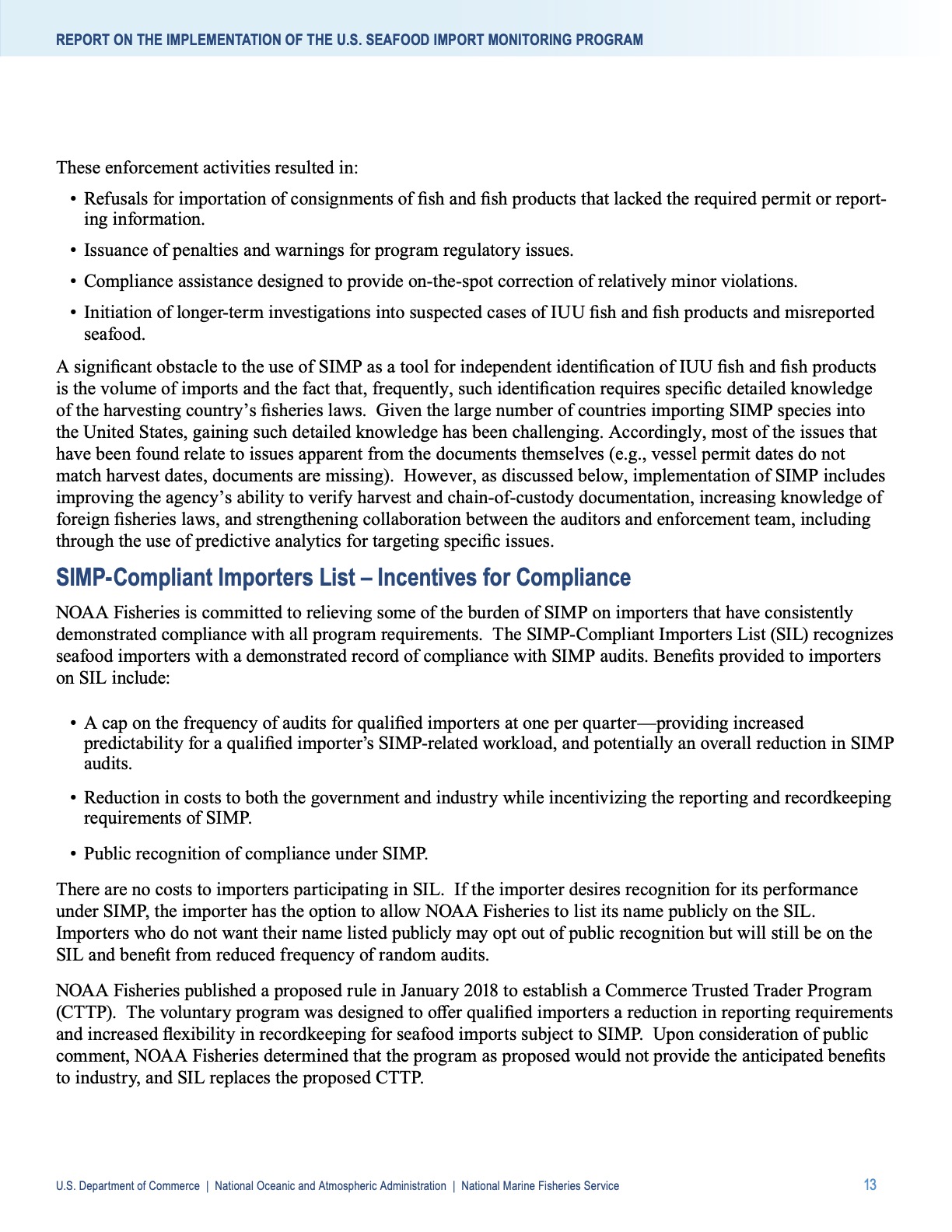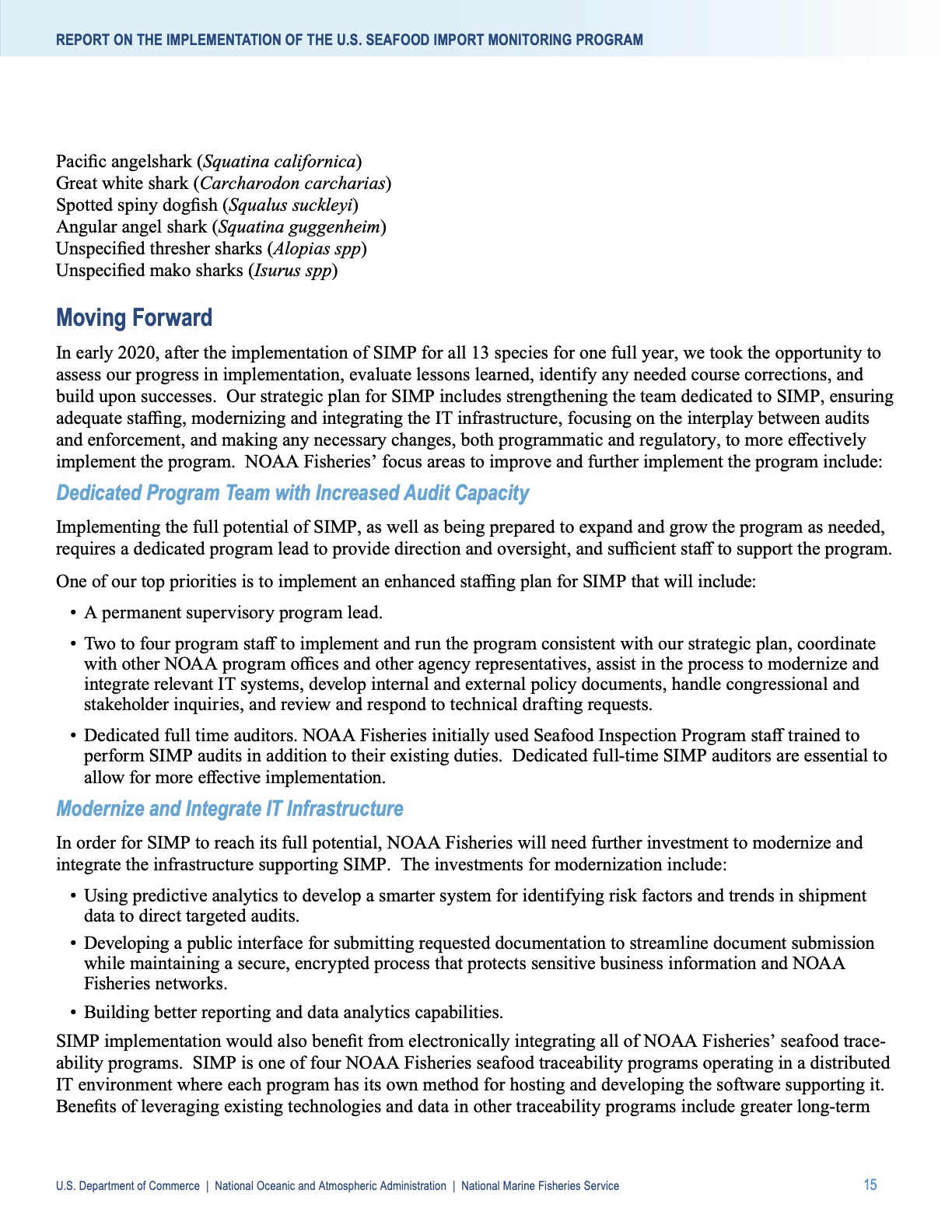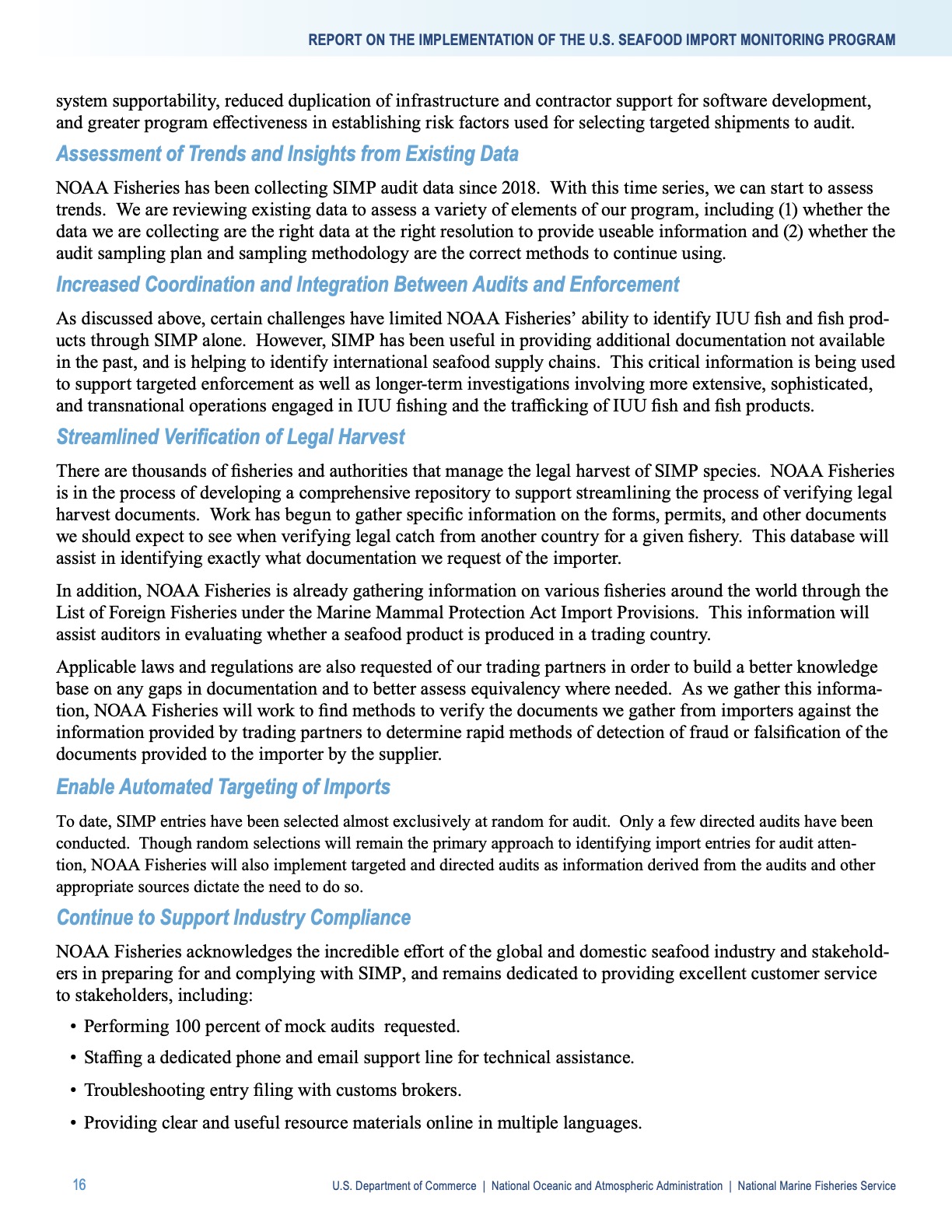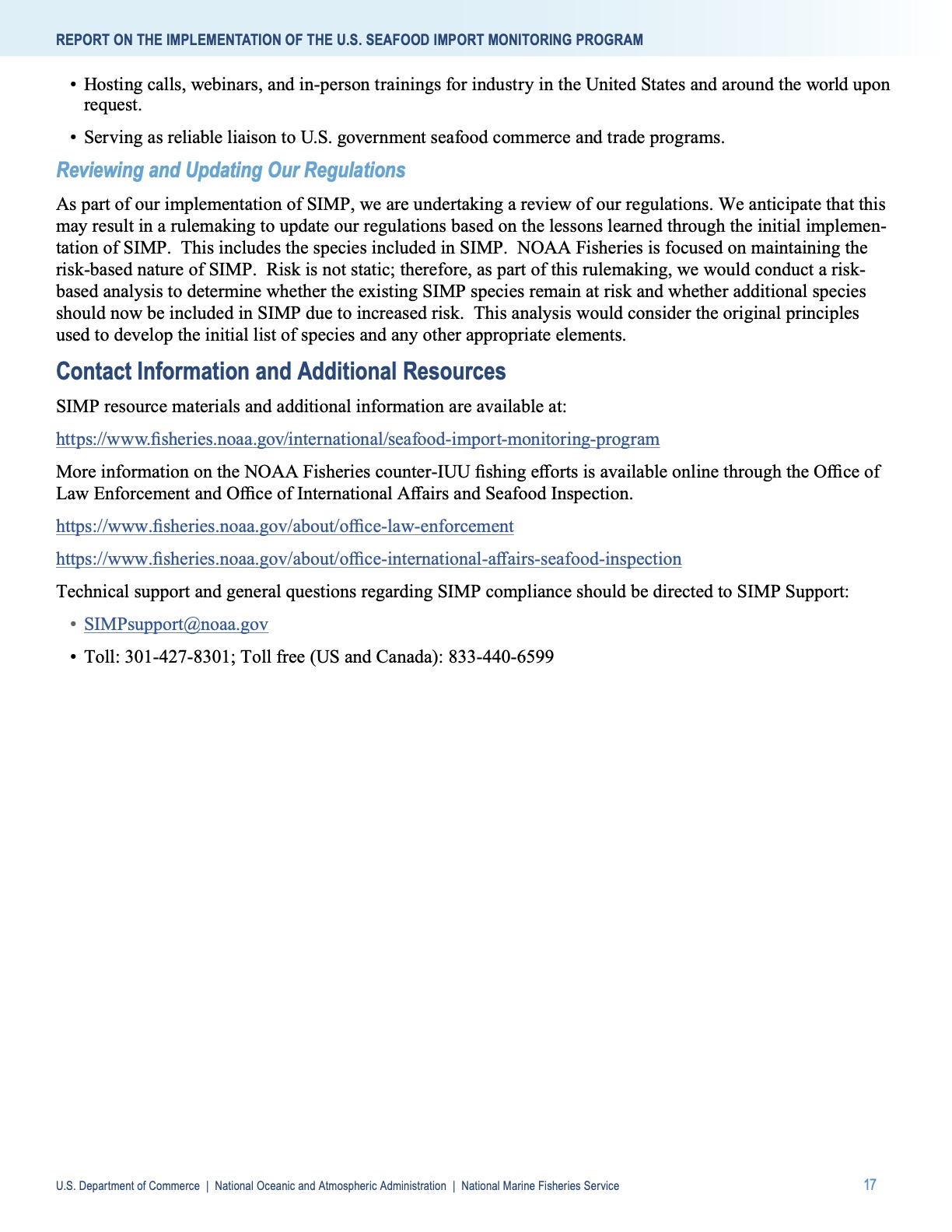NOAA Releases 2021 Report on the Implementation of the U.S. Seafood Import Monitoring Program
May 24, 2021
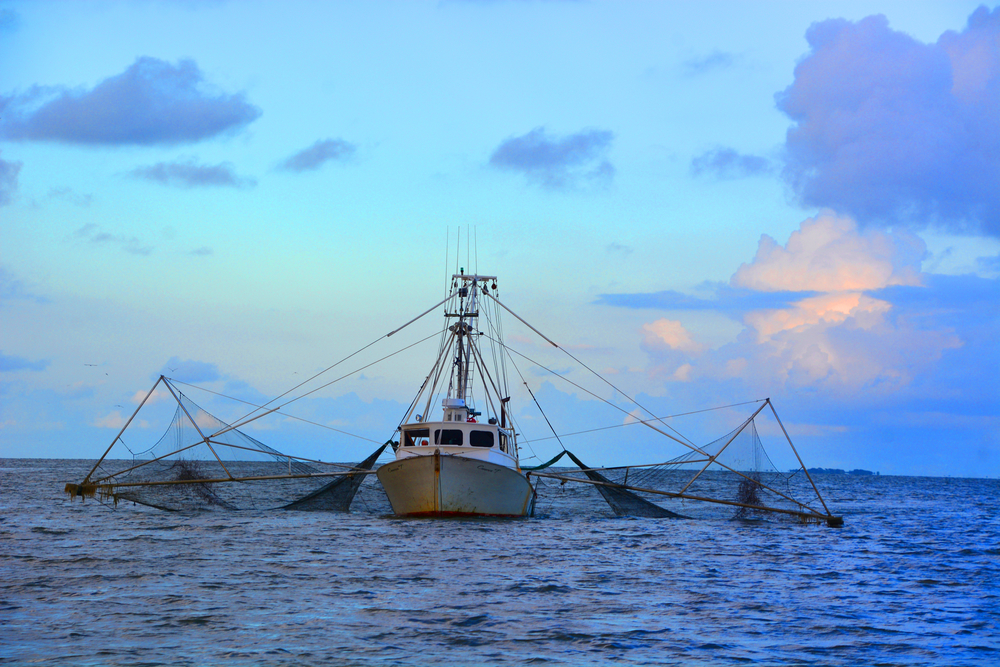
NOAA Fisheries recently released its report on the implementation of the U.S. Seafood Import Monitoring Program, or SIMP.
As part of their efforts to prevent, deter and eliminate illegal, unreported and unregulated (IUU) fishing practices, NOAA and the U.S. government have employed the Seafood Import Monitoring Program (SIMP). The goal of the program is to both deter IUU seafood from entering U.S. commerce while also increasing support for existing traceability programs. It is implemented through permitting, reporting and record-keeping requirements for importers of seafood products. This is of particular importance due to the fact that more than 85% of seafood is imported into the United States, meaning that the implementation of SIMP should provide American consumers with a more eased state of mind that the seafood they are purchasing is harvested legally and labeled accurately.
SIMP was established in December 2016 and its requirements have been attempting to regulate imported seafood coming into the U.S. ever since. On January 1, 2018, SIMP came into effect for 11 out of 13 priority species, including everything from Atlantic cod to king crab. After an adjustment period for implementation, shrimp have also been included on the priority species list since December 31, 2018, comprising more than 1,1000 unique species total.
Other highlights of the report include:
- Program data and efforts for the first two years of the program’s operation (2019 and 2020).
- An analysis of its implementation to date.
- A status of audits and enforcement activities.
- NOAA’s future plans to further implement the program.
- Areas of significant success in its mission to identify and deter IUU fish and fish products from entering the U.S. market.
The entire report can be found below or linked HERE.
Suggested Articles
ASPA Fights Back Against Indian Shrimp Imports Made with Forced Labor
Port Arthur, TX (April 16, 2024) The American Shrimp Processors Association (ASPA) is taking aggressive action to combat imports of shrimp from India that were...
Read More April 2024American Shrimp Processors Association Launches Trade Petitions Addressing Unfair Dumping and Illegal Subsidies
Read additional information about the trade petitions, including public copies of ASPA filings. Today, the American Shrimp Processors Association (ASPA) filed trade petitions seeking antidumping...
Read More October 2023Bipartisan Legislation Introduced to Ensure the Availability of Healthy and Safe American Shrimp
WASHINGTON, DC – U.S. Representatives Garret Graves (Louisiana) and Kathy Castor (Florida) introduced legislation to stop unsafe, illegally-produced shrimp from reaching consumers. Much of the shrimp...
Read More August 2023


